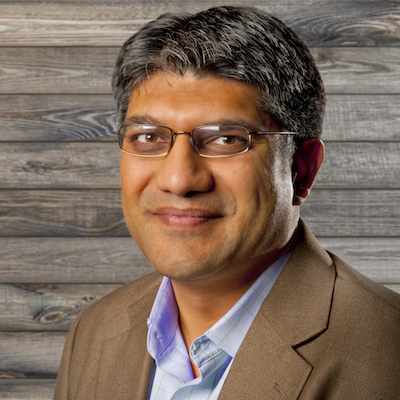by Ruth Fein Revell, January 20, 2021
“This is the largest wealth creation opportunity of our lifetimes,” Jigar Shah tells Solar Podcast. “There will be nothing else that will produce more wealth, more jobs, more work,” he says about deployment of clean energy technologies across electricity, transportation and manufacturing sectors. But what does it take to actually get that money in the door? Jigar puts the answer in perspective as a new administration steps into the nation’s capital. View the full interview here.
New Era in Washington – Business as Usual?
“The clean energy industry has been winning consistently for the last four years. So it’s not like the Trump administration has really slowed anything down,” he says, nationally or in the Midwest. President Biden has said that every single agency is going to have a climate person; every program will have a climate lens. “With this new attitude,” which he likens to a wartime effort, “the question will be: could I do more?”
How Big is the Opportunity?
Jigar believes the private sector is willing to invest some $1 trillion dollars a year in the clean energy revolution, and he says the Midwest is poised to raise its hand and say how much of that it wants. “I agree. We have to think bigger in the Midwest,” says host Tim Montague, of Continental Energy Solutions in suburban Chicago. So how do you break it down for local governments and industry? What’s the opportunity?
“I don’t think it’s a matter of cost, and it’s not a matter of technology,” says Jigar. “It’s a matter of willpower and folks saying we are going to organize ourselves to actually get this done. We are going to figure out which corridors we want to put transmission in. We’re going to figure out who we want to support – in terms of landowners – to put solar or wind on the ground. And who wants to help with rate basing . . . transmission and costs?”
How Far Does a Trillion Dollars Go?
There’s enough opportunity to go around, he adds. “The utilities will have plenty to rate base and the construction groups and the unions and everyone else will have their fair share of jobs and work to do.” The challenge is getting more counties (and municipalities) on board. “I grew up in Whiteside County (Illinois) . . . still shell-shocked from when Northwestern steel and wire shut down in the eighties,” says Jigar. “The municipal utility . . . has over $1.4 billion of free money available to it from the USDA and from the US Treasury Department. It could raise its hand and get to deploy a lot of this technology.”
“But if you look in the rear view mirror and all you see is corn and beans and heavy industry, you don’t see the clean energy revolution,” says Tim. “It’s just now showing up in the newspapers and in the cornfields. So how do we catch up and start stepping on the gas towards the transformation?” I don’t think it’s catching up, says Jigar. “I view it as choosing to lead. It’s not about what has been done the last 20 years . . . no one is behind. What they have to do is to go out and claim theirs.”
This complete interview and others can be viewed at the Solar Podcast, brought to you by Tim Montague and Continental Energy Solutions.
About Jigar Shah
Jigar Shah is the Co-Founder of Generate Capital, an investment and operating platform that builds, owns, operates, and finances infrastructure assets involving the world’s critical resources: energy, water, agriculture and basic materials. Generate’s team has decades of collective experience financing billions of dollars of sustainable infrastructure. Every week you can catch him on Greentech Media’s “Energy Gang” podcast.
Jigar Shah is best known as the Founder of SunEdison, where he pioneered “no money down solar” and unlocked a multi-billion-dollar solar market, creating the largest solar services company worldwide.
In 2009, Jigar joined Richard Branson to be the first CEO of the Carbon War Room, a global non-profit commitment to supporting global entrepreneurs scale their climate solutions. Based on that experience, he authored Creating Climate Wealth: Unlocking the Impact Economy.

Trackbacks/Pingbacks